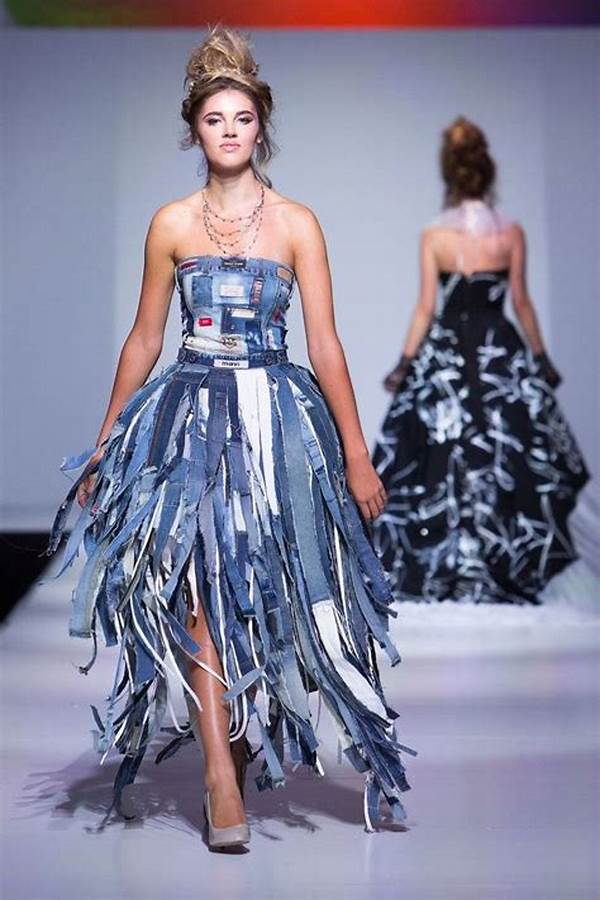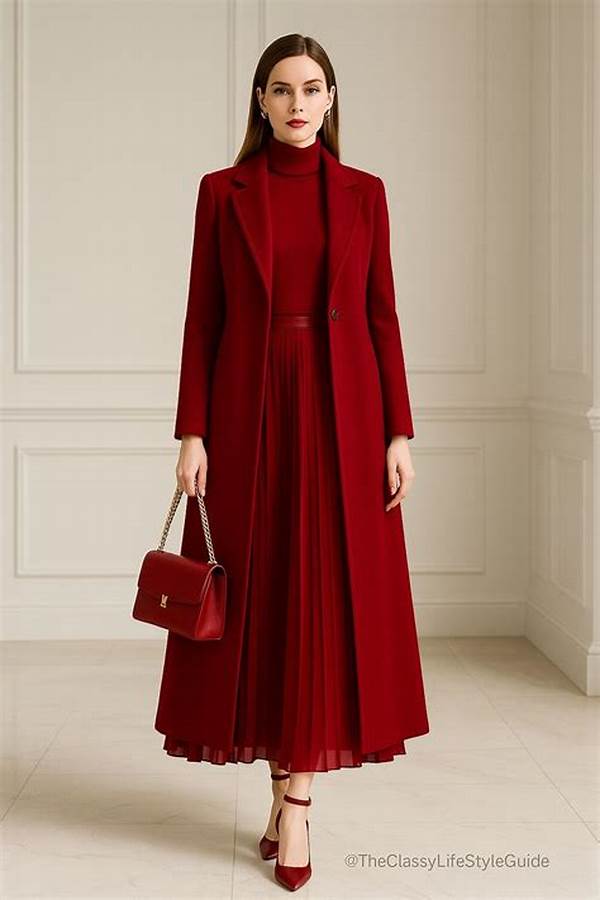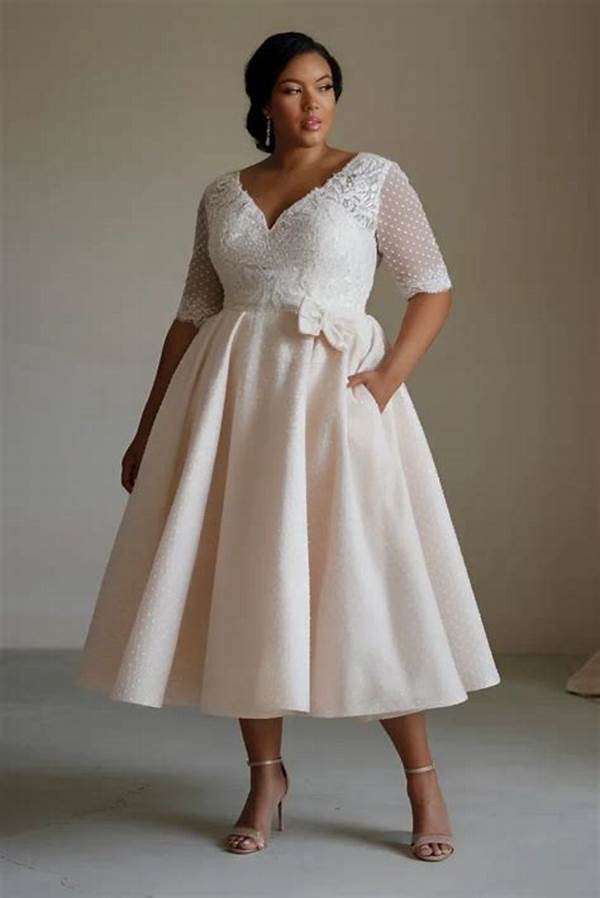In a world where sustainability is no longer an option but a necessity, upcycled material fashion trends are capturing the imaginations of both designers and consumers. This movement not only breathes new life into discarded materials but also paves the way for a more environmentally friendly and stylish future. By embracing upcycled fashion, not only are individuals contributing to a reduction in waste but are also celebrating creativity and uniqueness in their personal style. Join the movement today and be part of the change you want to see in the world.
Read Now : “clearance On Plus Size Designer Brands”
The Rise of Upcycled Fashion
The rise of upcycled material fashion trends is transforming the fashion industry, reshaping the way people view clothing and accessories. Embracing these trends means wearing items crafted with intention and conscience, setting a new standard for responsible consumerism. Upcycled fashion offers a unique blend of style, sustainability, and innovation. Each piece is a testament to the skill and creativity of designers who turn discarded fabrics into high-quality fashion items. By investing in upcycled material fashion, you’re not just acquiring a product; you’re endorsing a movement committed to positive environmental impact. Make a statement that aligns with your values and allows you to stand out with every wardrobe choice.
Benefits of Upcycled Material Fashion
1. Environmental Impact: Upcycled material fashion trends drastically reduce waste. By repurposing fabrics, we lower the demand for new resources, minimizing the carbon footprint.
2. Unique Style: With upcycled fashion, every piece is unique, offering an exclusive addition to your wardrobe that highlights your individual style.
3. Economic Sensibility: Supporting upcycled material fashion can be more cost-effective than buying new. The unique nature of these pieces often leads to timeless wear.
4. Supporting Local Artisans: Many upcycled material fashion trends are powered by small businesses and artisans, encouraging local economy growth and sustainability.
5. Creative Expression: Upcycled fashion provides a canvas for designers to express innovative ideas while defying traditional industry norms.
The Role of Consumer Choice
Consumer choice plays a pivotal role in driving upcycled material fashion trends. As individuals become more eco-conscious, their purchasing decisions have deep implications on the environment. Choosing upcycled fashion isn’t just a personal style decision; it’s a commitment to sustainability. Each purchase made in favor of upcycled materials signifies a demand for ethical practices in the fashion industry. Consumers have immense power to influence trends based on their choices. By prioritizing products that utilize repurposed materials, we encourage brands to adopt and maintain sustainable practices. Ultimately, this collective shift can result in a transformation of the entire industry, leading to a more sustainable and ethical future.
Read Now : Retro Style Fashion Emporiums
Innovators in Upcycled Fashion
The innovators behind upcycled material fashion trends are redefining creativity within the fashion industry. Designers worldwide are stepping up to explore the possibilities of repurposed materials. From incorporating recycled fabrics into mainstream collections to creating luxury garments from waste materials, these visionaries are challenging the norms. They are driven not only by the desire to innovate but by the urgent need for sustainable solutions in fashion. By supporting these pioneering brands and designers, consumers accelerate the movement toward a sustainable future. The dedication of these innovators ensures that upcycled material fashion trends continue to inspire and influence the industry on a global scale.
The Future of Fashion Sustainability
Upcycled material fashion trends are spearheading the future of sustainable fashion. As environmental concerns grow, the demand for eco-friendly alternatives in fashion becomes more pressing. The future of fashion lies in innovative thinking that turns waste into wearable art. By adopting upcycled materials, the industry can significantly reduce its environmental impact and create a circular economy. The shift towards sustainability promises a future where fashion doesn’t just coexist with nature but actively contributes to its preservation. As these trends gain momentum, they offer hope for a world where style and sustainability go hand in hand, leading to a healthier planet.
The Cultural Impact of Upcycled Fashion
Upcycled material fashion trends go beyond environmental significance—they hold cultural relevance. This movement challenges conventional views on fashion and style, inspiring a culture of mindful consumption. As individuals and communities adopt upcycled fashion trends, they cultivate a sense of responsibility towards the planet. This cultural shift encourages creativity rooted in sustainability and redefines what it means to be fashionable. By wearing upcycled designs, consumers send a powerful message about their values and priorities, influencing societal norms and encouraging more sustainable practices across the globe. This infusion of eco-consciousness in fashion reflects a broader cultural movement towards sustainability, ethical living, and respect for the environment.
Embrace the Upcycled Fashion Movement
In summary, upcycled material fashion trends are not just a fleeting fad; they represent a substantial shift towards sustainable consumerism. By embracing these trends, consumers have the opportunity to make thoughtful, impactful choices that benefit the environment. As the movement grows, so does its influence, compelling major fashion houses and independent designers alike to reconsider their environmental responsibilities. Upcycled fashion empowers individuals to express their personal styles while advocating for a sustainable future. By making a conscious effort to incorporate upcycled pieces into their wardrobes, consumers participate in a global initiative to create a fashion industry that respects the planet and its resources, ensuring longevity for generations to come.




